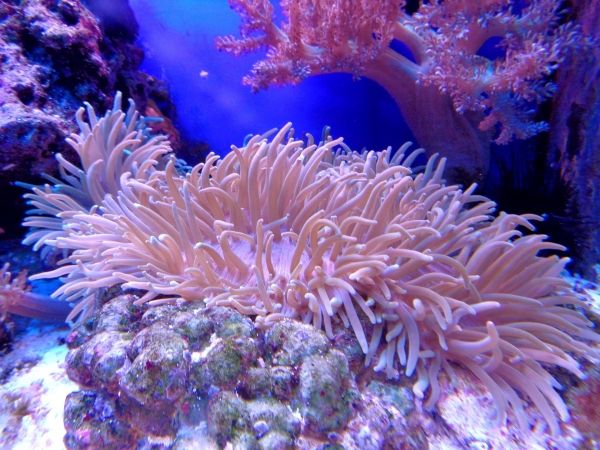The algae, known as peyssonnelid algal crusts (PAC), are taking over the reefs at such an aggressive rate that they are interfering with the ability of coral larvae to find places to settle on the reefs, and interfering with the reef’s natural ecosystem.
Marine biologists from the University of Oxford, California State University Northridge and the Carnegie Institution for Science, have been studying the biology and ecology of this alga on these reefs for the past four years. Today in Scientific Reports they describe this new threat and what it might mean for reefs already teetering on the brink of collapse.
Dr Bryan Wilson from the Department of Zoology, University of Oxford, said: ‘This alga seems to be something of an ecological winner in our changing world; it aggressively occupies any vacant space on the reefs, rapidly overgrows and kills live corals, prevents free-swimming coral larvae from settling on the benthos and becoming adult colonies, and is unaffected by the regular destructive hurricanes that sweep through the area.
‘It is also seemingly resistant to grazing by fish, and as far as we know, is only fed upon by a single creature, the black spiny urchin (Diadema antillarum), once ubiquitous and abundant in the Caribbean, but which was effectively wiped out in the 1980s by a mysterious disease.’
Read more at: University of Oxford
Photo Credit: AliceKeyStudio via Pixabay


